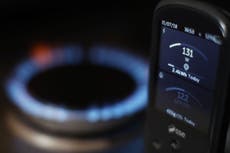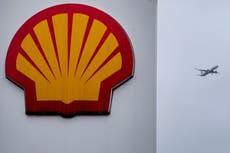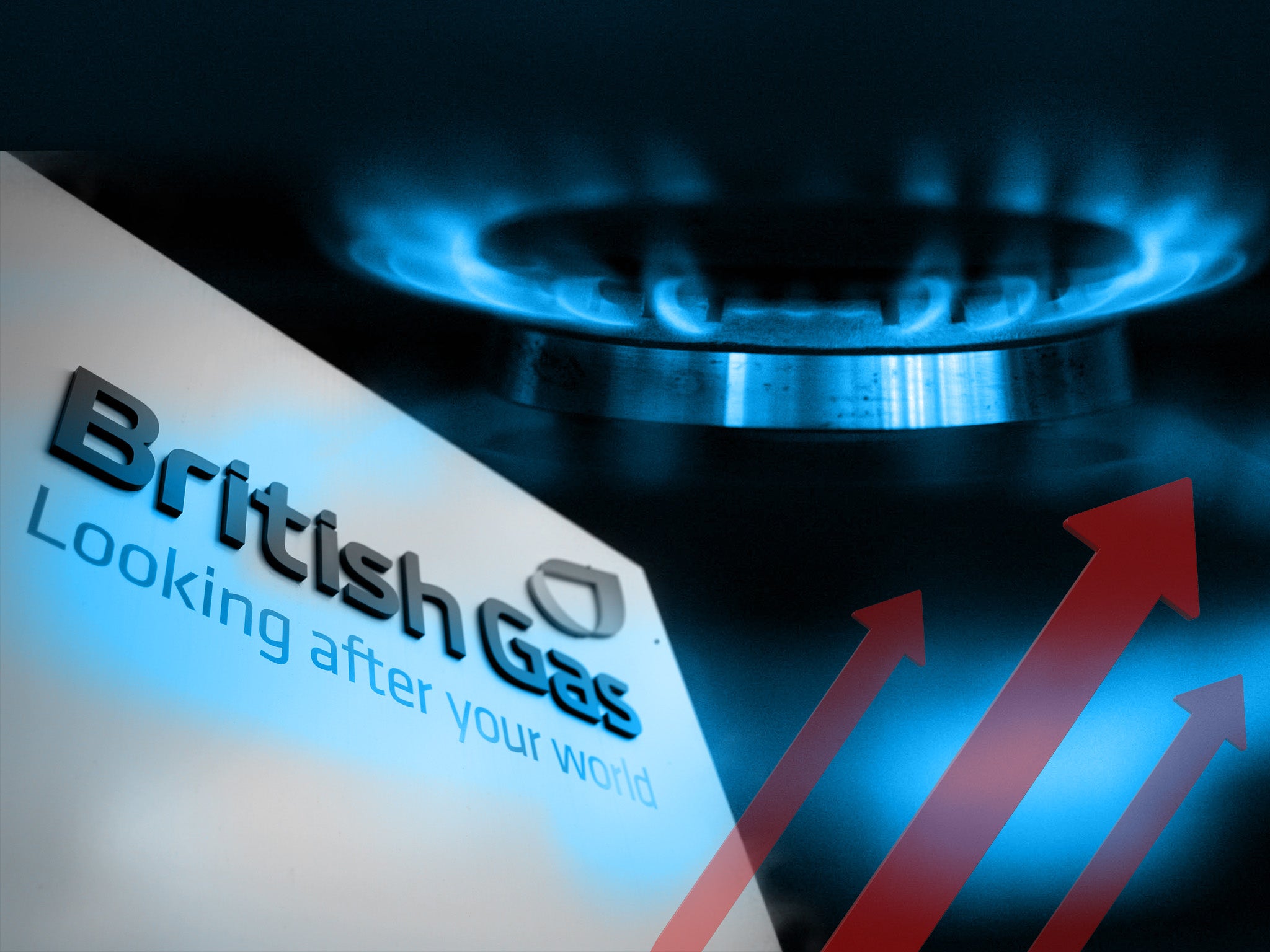
Wholesale energy prices have fallen but this has not fed through to consumers due to lack of incentives, say experts
The Independent
British Gas owner Centrica sees supply arm profits soar on price cap boost
Experts have explained why British Gas has reported its highest-ever first-half profits of almost £1bn while households continue to struggle to pay huge bills amid the cost of living crisis.
The supplier’s owner Centrica made a £6.5 billion profit in the first half of 2023, while earnings at its supplier arm soared by 889 per cent. The figures were released as another energy giant, Shell, also announced profits of £3.9 billion over the past three months.
Dr George Dibb, head of the Centre for Economic Justice at the UK think tank IPPR, explained that while wholesale energy prices have fallen from their summer 2022 peak, this has not yet been fed through to customers. This means bills remain high while energy firms’ profits do too.
Dr Jeevun Sandher, head of economics at the New Economics Foundation, said energy firms lacked any incentive to lower energy bills simply because wholesale energy costs have come down. This is due to a combination of lack of regulatory oversight, little competition within the sector, and an energy price cap that companies are reluctant to go under, he explained.
“I haven’t seen any deals on the market that say you’ll get lower than the energy price cap,” he told The Independent. “The consumers in this situation are powerless. The government and the regulators should step in – the consumers themselves can’t really do it.”
RECOMMENDED
British Gas owner Centrica sees supply arm profits soar on price cap boost
Experts have explained why British Gas has reported its highest-ever first-half profits of almost £1bn while households continue to struggle to pay huge bills amid the cost of living crisis.
The supplier’s owner Centrica made a £6.5 billion profit in the first half of 2023, while earnings at its supplier arm soared by 889 per cent. The figures were released as another energy giant, Shell, also announced profits of £3.9 billion over the past three months.
Dr George Dibb, head of the Centre for Economic Justice at the UK think tank IPPR, explained that while wholesale energy prices have fallen from their summer 2022 peak, this has not yet been fed through to customers. This means bills remain high while energy firms’ profits do too.
Dr Jeevun Sandher, head of economics at the New Economics Foundation, said energy firms lacked any incentive to lower energy bills simply because wholesale energy costs have come down. This is due to a combination of lack of regulatory oversight, little competition within the sector, and an energy price cap that companies are reluctant to go under, he explained.
“I haven’t seen any deals on the market that say you’ll get lower than the energy price cap,” he told The Independent. “The consumers in this situation are powerless. The government and the regulators should step in – the consumers themselves can’t really do it.”
RECOMMENDED
British Gas profits soar by staggering 889% to record £969m as households struggle with huge bills


Why has British Gas made a record profit?


Shell earnings top $5 billion. But that's nearly half what it pulled in months ago
Dr Dibb also pointed out: “Consumers don’t have the power – firms have pricing power.” He said this was especially so when it comes to services people have no choice but to continue purchasing, such as energy and food, even when inflation is worsening. “If a family is struggling, they can’t not have food for their kids or not put the heating on,” he said. “People are already struggling with bills and then they can’t skimp and save anymore. So we’ve seen a great number of people pushed into poverty.”
However, Dr Sandher did say the energy price cap – which is currently set at £2,074 for a typical household per year, about twice as high as it was before the pandemic – is set to fall slightly when it is reviewed in October.
Dr Dibb said that will see bills come down in the next few months but that was down to the regulator Ofgem reducing the cap rather than companies helping out.

British Gas has reported its highest-ever first-half profits of almost £1bn
(Getty)
“Energy firms’ primary concern is about rewarding shareholders,” he said, adding he was not surprised at the reports of huge profits as “that has been a pattern for the last two years”.
He continued: “It demonstrates that our economy is fundamentally unfair. Real wages remain low, yet corporate profits continue to rise. It is people on salaries who are bearing the weight of inflation rather than companies and their profit margins.”
An Ofgem spokesperson said the energy sector was expected to return to profit this year after four years of loss-making and said the soaring profits seen in the first half of this year were a “one-off”. They added that the rise in profits meant suppliers could recoup some of the significant costs and losses they incurred over recent years due to Covid and the Russian invasion of Ukraine.
“We have been clear the sector must not pay dividends until they are financially robust enough to weather future shocks. We’re closely monitoring levels of customer service, support and financial adequacy and can and will act where suppliers are found lacking. Part of this monitoring will include checking for undue benefits for suppliers as prices fall and profits return and, where we see this, Ofgem will recoup money from suppliers for consumers via the price cap,” they added.
Minister for Energy Consumers and Affordability Amanda Solloway said: “We have stood by consumers as Putin’s illegal attack on Ukraine sent wholesale prices to record highs, covering half a typical household energy bill this winter. Now prices are falling, from this month a typical household will save £426 a year on their bills.”
The Independent has approached British Gas for comment.
Dr Dibb also pointed out: “Consumers don’t have the power – firms have pricing power.” He said this was especially so when it comes to services people have no choice but to continue purchasing, such as energy and food, even when inflation is worsening. “If a family is struggling, they can’t not have food for their kids or not put the heating on,” he said. “People are already struggling with bills and then they can’t skimp and save anymore. So we’ve seen a great number of people pushed into poverty.”
However, Dr Sandher did say the energy price cap – which is currently set at £2,074 for a typical household per year, about twice as high as it was before the pandemic – is set to fall slightly when it is reviewed in October.
Dr Dibb said that will see bills come down in the next few months but that was down to the regulator Ofgem reducing the cap rather than companies helping out.

British Gas has reported its highest-ever first-half profits of almost £1bn
(Getty)
“Energy firms’ primary concern is about rewarding shareholders,” he said, adding he was not surprised at the reports of huge profits as “that has been a pattern for the last two years”.
He continued: “It demonstrates that our economy is fundamentally unfair. Real wages remain low, yet corporate profits continue to rise. It is people on salaries who are bearing the weight of inflation rather than companies and their profit margins.”
An Ofgem spokesperson said the energy sector was expected to return to profit this year after four years of loss-making and said the soaring profits seen in the first half of this year were a “one-off”. They added that the rise in profits meant suppliers could recoup some of the significant costs and losses they incurred over recent years due to Covid and the Russian invasion of Ukraine.
“We have been clear the sector must not pay dividends until they are financially robust enough to weather future shocks. We’re closely monitoring levels of customer service, support and financial adequacy and can and will act where suppliers are found lacking. Part of this monitoring will include checking for undue benefits for suppliers as prices fall and profits return and, where we see this, Ofgem will recoup money from suppliers for consumers via the price cap,” they added.
Minister for Energy Consumers and Affordability Amanda Solloway said: “We have stood by consumers as Putin’s illegal attack on Ukraine sent wholesale prices to record highs, covering half a typical household energy bill this winter. Now prices are falling, from this month a typical household will save £426 a year on their bills.”
The Independent has approached British Gas for comment.
No comments:
Post a Comment